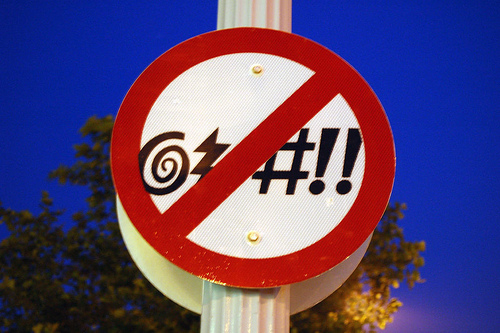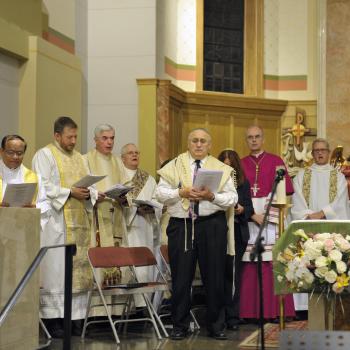
Well, shut the front door:
Mimi Duphily was hanging baskets of pink geraniums on antique street lamps downtown for the Middleborough Beautification and Activities Group when she noticed something else that needed cleaning up—citizens’ mouths.
“The cursing has gotten very, very bad. I find it appalling and I won’t tolerate it,” said Ms. Duphily, a civic leader in the otherwise quiet New England community, which calls itself the Cranberry Capital of the World. “No person should be allowed to talk in that manner.”
Soon, Middleborough residents who do could risk a $20 fine.
Ms. Duphily, 63 years old, tried scolding the cursers—whom she describes as young people shouting the “F word” back and forth—with a stern, “Hey kids, that’s enough!” Then she conferred with the Beautification and Activities Group, which informed the Middleborough Business Coalition, which then called a summit with Middleborough Police Chief Bruce Gates, who now, in his sworn role, is trying to stomp out swears.
He is asking citizens to vote at the annual Town Meeting on Monday to flush potty mouths by granting police the power to issue $20 civil tickets to anyone who publicly “accosts” another person verbally with profanity.
He isn’t targeting ordinary swears, like an understandable expletive uttered after a Red Sox loss. He said he is aiming at offenses like “profane language at some attractive female walking through town.” His officers patrol on bikes and can already give tickets for public drinking, rubbish thrown in streets and more. Cursing is another “quality of life” issue, he said.
UPDATE: A reader notes:
Unfortunately (or not, depending on one’s views on civil liberties) foul language is generally considered protected speech. The Supreme Court held as such on a number of occasions since the 1970’s. There are some exceptions. But they are pretty narrow and the courts almost always rule against attempts to regulate speech. If passed this law will not survive its first day in court.















